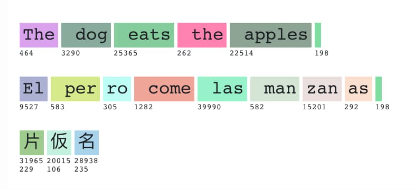Sick of AI yet?
Well tough, because I’m here to ram another AI article down your throat.
The global AI market is roughly valued at $142.3 billion and that is as sure as death and taxes to increase in 2024.
But a lot of AI companies have a secret.
They’re not actually “AI” companies.
They’re piggybacking off OpenAI by using their API to “outsource” their AI capabilities and paying for the privilege. This means that none of the actual “AI” bit is being done by the aforementioned company, instead it's being done by OpenAI.
Businesses that do this are called “GPT wrapper” companies (I recently built an OpenAI wrapper chatbot called MattBot), and a big debate has been raging about the validity of these businesses, stoked by OpenAI recently implementing the ability within ChatGPT to natively read PDFs and documents, effectively crushing a tonne of “chat with PDF” wrapper companies who use the OpenAI API as their core feature set.
In the wake of this purge, questions are being asked as to whether a company that builds its core functionality solely around another business's API is a real, legitimate business.
Let’s dive in.
Starting with the obvious one, and what was felt by the “chat with PDF” companies very recently.
If you are outsourcing the technical backbone of your company to another company, there is a good chance that this other company can and will release features that make their product more appealing than yours.
If you are effectively a “mask” or “wrapper” for a company like OpenAI, they may decide to chip away at that wrapper over time to attract more users.
I should be clear here, using the API itself doesn't make you a wrapper company. Plenty of companies have integrations with OpenAI to enhance their feature set. I'm talking here about the companies whose entire business is built around making a product that does something ChatGPT can't do at the moment that are liable to be affected by OpenAI feature releases e.g. talk with PDFs or customisable chatbots.
This means that GPT wrapper companies don’t have a competitive “moat” or advantage that stops competitors stealing their market share.
Another core detriment for wrapper companies is that not having control of your core tech can stifle your innovation and agility.
You are effectively bound to however the OpenAI model works, and can’t adjust to provide your consumers with a better experience.
I’m a big proponent of early-stage startups retaining as much internal control over things like product velocity and development pipeline, and for wrapper companies, that has a natural limit, which can mean a less than stellar experience for their users and a less appealing proposition for investors.
The OpenAI API makes money by charging you for the amount of input and output, measured in tokens.
Tokens are effectively words turned into numerical identifiers, for example the phrase “hey my name is Matt” is represented as the tokens “[36661, 856, 836, 374, 27537]”.

For a thousand tokens of input, OpenAI charges $0.03 and for a thousand tokens of output, OpenAI charges $0.06, which, for software servicing thousands of clients, can really add up.
And crucially, this pricing can rapidly change at the drop of a hat.
Look at Elon’s Twitter and Reddit. Both companies abruptly jacked up the prices of their API and put several small companies out of business.
Having a major, vital expense like this completely out of your control and liable to change at any moment is a real risk for wrapper companies, and could cause them to have to increase prices at the drop of a hat, causing headaches and churn from consumers.
Your input to the OpenAI API is definitely being monitored by OpenAI, and if they can sense that your business idea is a viable and profitable enterprise, there’s nothing you can do to stop them deciding to copy your idea into their core product.
There’s unfounded speculation that this is exactly what happened with the “Chat with PDF” companies.
This provides a sort of twisted fate for GPT wrapper companies, as the more you scale and succeed, the more you are proving the efficacy of your core premise, and the more likely it is for OpenAI to take it and build it into ChatGPT natively, meaning you suffer from your own success

A less often talked about issue of ChatGPT wrapper companies is that by shipping data to OpenAI, they don’t have control over how that data is used or stored.
For example, imagine a GPT wrapper company that provides a chatbot for medical device repairs. This company is technically sending private medical information to a separate company, with no control over how they use or store that data at all. In fact, OpenAI may choose to use that data to train their next generation models, and there is nothing the wrapper company can do to promise their clients that this won’t happen.
I predict there are going to be some serious lawsuits soon over this exact phenomenon as companies bring the OpenAI API into their tech stack and forget to update their subprocessor lists in their terms of service.
Innovation breeds innovation. A landmark technological breakthrough like ChatGPT was naturally going to spawn thousands of other companies and millions of investment dollars. This is how “ecosystems” are built, and is a relatively common phenomenon with other APIs.
For example, Uber is a company with a market cap of $97.58B at the time of writing and uses the Google Maps API for its core maps functionality.
In fact, Uber is a good case study for mitigating some of the negative side effects of using an API.
Google actually hiked their API price and Uber stopped using the API for a while, switching to MapBox for a bit, until Google simplified the API pricing again, allowing Uber to switch back.
This goes to show that having an exit plan or backup can be invaluable for wrapper companies, and allow them to increase their validity and attractiveness to investors.

Speed is everything for startups. Investors want to see product velocity and they want to see it early.
And a big drawback of building your own model is it takes a tonne of time, money and expertise to get to a minimum viable product (MVP).
Instead, using OpenAI’s API could give founders a way to prove the validity of their concept, without building Skynet in their garden shed.
Similar to above, investors often stake their bets on founders they believe will create something meaningful, rather than already have created it.
By building complex products using an external API, founders will be highlighting that they have the engineering talent to make it work, they just need the extra oomph of a few billion dollars to get the actual AI bit right.
I don’t mind them.
I think that APIs play such a large part in web development across the board that it is untenable to be anti-GPT wrapper companies but pro companies that use Stripe or Google Maps API to provide value to consumers.
However, the risks that come with building your core USP around another business’s technology cannot be ignored by startups. Because of this, I’m only pro wrapper companies if they have a USP and a backup plan if the API was suddenly removed by an increased price, like the Uber example listed earlier.
A key way to check this is whether the company has actual AI researchers and experts in-house. If they do, they're for sure in a better position that small one or two person teams that rely solely on the API.
My advice for wrapper companies would be to look heavily into open source modelling whilst building your MVP with OpenAI’s API, as I believe that this could be a huge backstop if OpenAI decide to try and imitate your functionality or raise their prices to such a degree to change your pricing model.
This is why the regulation battle is so crucial to the development of the AI space. Regulation could stifle the open source movement to the point where the only options for generative AI products boil down to a handful of options.
Would you want to see me write a blog on regulation? Let me know in the comments!
Load comments
Comments
No comments yet, be the first!